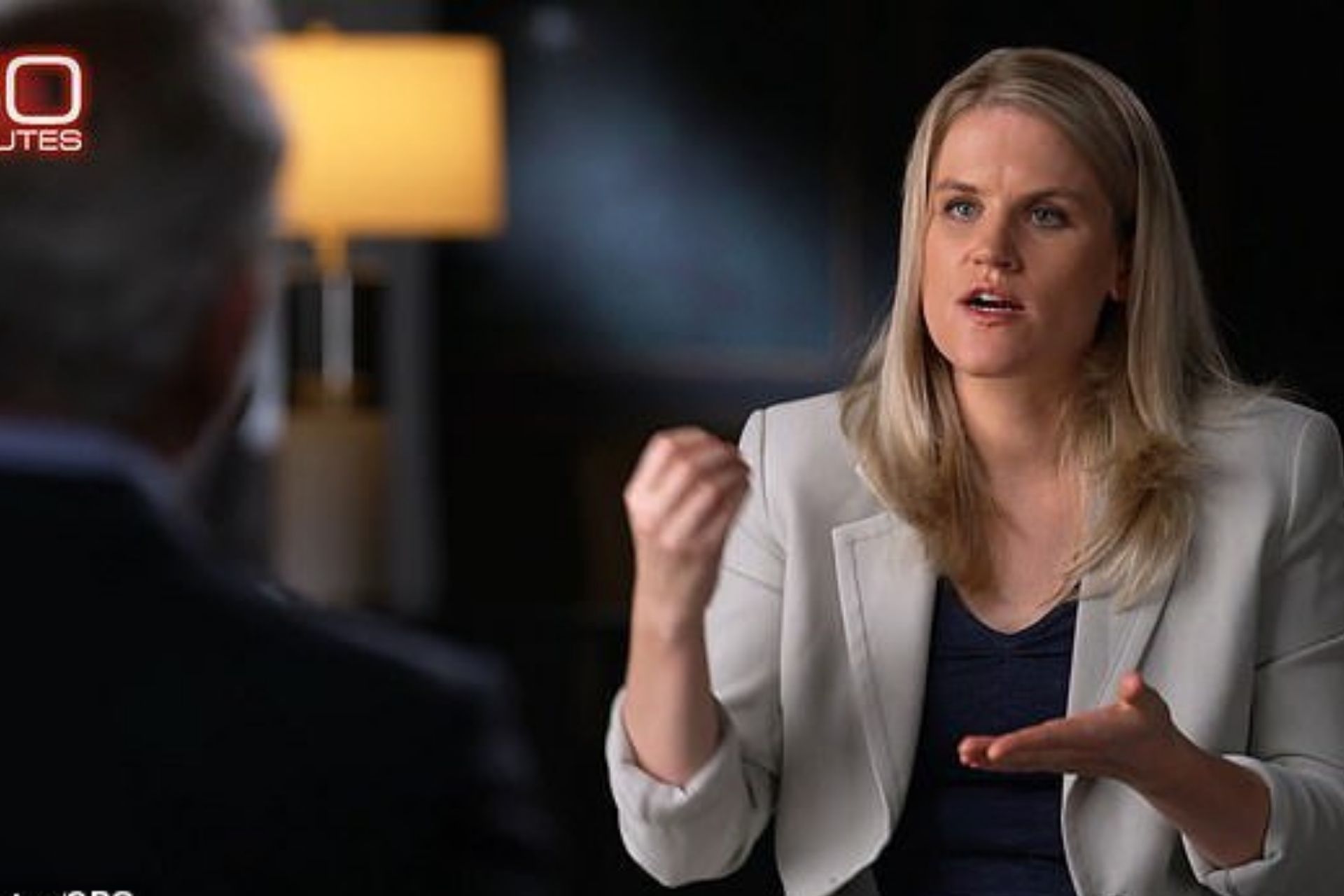Learn about the 5 female whistleblowers – Chelsey Glasson, Timnit Gebru, Ifeoma Ozoma, Aerica Shimizu Banks, Frances Haugen – that shook Facebook, Google and Pinterest.
A whistleblower is someone that blows the whistle, and no, we’re not talking about the wind instrument. Instead, we’re talking about someone that calls out or reports someone else’s wrongdoing.
Scandals from employees who blow the whistle on companies might be costly to the companies and their investors in the immediate term but become more profitable in the long run.
Whistleblowers are usually persons working within an organization or persons who worked there but report the organization’s misconduct – which could be either a past act, an ongoing one, or one in the planning stages.
There are two types of whistleblowing. The first is internal whistleblowing, where the whistleblower reports the misconduct to another person within the organization. While the second is external whistleblowing, where the whistleblower reports misconduct to a person outside the organization, such as law enforcement or the media.
In this article, we have compiled information about the top 5 female tech companies external whistleblowers in recent years.
1. Frances Haugen: Facebook Whistleblower

Frances Haugen was a former Facebook employee for nearly two years before she left on her own accord. While at the tech company, she worked on the civic integrity team as a product manager to combat election interference and misinformation.
Before working at Facebook, she was a product manager at Google, Pinterest and Yelp.
In September 2021, Haugen blew the whistle on Facebook because she lost faith in its commitment to protecting users after it disbanded the civic integrity team following the 2020 presidential race. Facebook claimed that it distributed the work to different teams.
However, she said that the social media giant is not investing enough “to keep Facebook from being dangerous.” She also believes that the lack of close attention was what led to the January 2020 attack on the Capitol.
Haugen also blames the 2018 algorithm change, which prioritized posts with high user engagement. It turns out lies and anger rank off the charts.
Speaking on the CBS News program, she said: “The thing I saw at Facebook over and over again was there were conflicts of interest between what was good for the public and what was good for Facebook. And Facebook over and over again chose to optimize for its own interests, like making more money.“
According to Frances Haugen, the aim isn’t to get people to hate Facebook. “If people just hate Facebook more because of what I’ve done, then I’ve failed,” she told the Wall Street Journal.
What does she want? She wants lawmakers to take action. Haugen told 60 Minutes that she is “hoping that this will have had a big enough impact on the world that they get the fortitude and the motivation to actually go put those regulations into place.”
See Also: Instant messaging apps set to dethrone Whatsapp following a new privacy policy with Facebook.
2. Aerica Shimizu Banks: Pinterest Whistleblower

In May 2019, Banks joined Pinterest as a public policy and social impact manager. And the next 13 months that followed didn’t grow her career. Instead, it was stifled, according to her.
She got to know about the job from her former colleague, Ifeoma Ozoma. Banks is a graduate of Princeton and Oxford who was about to start her sixth year at Google when Ifeoma reached out to her about the job. The role would be leading the company’s federal policy team from its new office in Washington DC.
Speaking of the Pinterest recruiting process, she said: “I was promised that there was no timeline for promotion. As long as you’re killing it, you will get promoted.”
Instead of what was promised, she got the opposite, and in her Twitter thread, Banks described her time at Pinterest as “a period of glaringly unfair pay, intense discrimination, and terrifying retaliation,” during which she received “disparaging comments” about her ethnicity and was “berated” for opposing the company’s plans to cut contractor pay during the 2019 holiday season.
At the end of it all, havoc had been wrecked on her mental health, which prompted her to begin taking antidepressants for the first time.
3. Ifeoma Ozoma: Pinterest Whistleblower

Ifeoma Ozoma’s troubles at Pinterest began nearly a year into her tenure, though, just like her colleague Banks, she had a clue a few months into the job because of the chart of seniority level job descriptions.
Seniority-level classifications, aka “levels”, are used by most tech companies. Higher levels equate to more responsibility and more pay, particularly in stock. At big tech companies, mid-senior level employees can often expect $200,000-$400,000 between cash and stock, while the highest seniority levels in engineering make $1 million or more, again, largely in stock. Every company has its own matrix and names for its seniority levels, so a Level 5 at one company might not equal the pay and responsibilities of a Level 5 at another.
The Yale graduate had previously worked at both Google and Facebook and was employed as the second employee on Pinterest’s social impact public policy team under her manager, as part of a bigger policy-crafting team, a job that had her flying around the world.
However, her issue, according to her, was the fact that “they wanted to pay [her] junior salary and have [her] do senior work”. So, she hired a lawyer because she believed that she still wasn’t at the right seniority level by Pinterest’s own job descriptions.
Speaking with Business Insider, she confirmed that she was given a promotion, but one which came with no new responsibilities; it was the work she was already doing, and it was work she believed was actually described for a role that was yet another level up from her newly assigned one.
Her determination for better pay grew more intense after another Pinterest employee leaked internal documents and her name to a far-right political group, and her personal information was shared on the internet, a practice known as doxing.
Ozoma said that the doxing was horrific and confirmed that she received death and rape threats, and random people showed up at her house. She reached out to former colleagues from Facebook and Google and hired a news intelligence agency to remove her personal information from the internet but felt that Pinterest should have done this for her.
Read More: Google celebrates 23 years; see significant milestones in the search engine’s history.
4. Timnit Gebru: Google Whistleblower

Timnit Gebru was technical co-lead of a Google team that focused on A.I. ethics and algorithmic bias. According to what she wrote on Twitter, she was “pushed” out of the company for writing an email to “women and allies” at Google Brain, the company’s division devoted to fundamental A.I. research, that drew the ire of senior managers.
In December 2020, she spoke with Bloomberg News, where she revealed that her firing came after a week in which she had wrangled with her managers over a research paper she had co-written with six other authors, including four from Google, that was about to be submitted for consideration at an academic conference in 2021.
Google had asked her to either retract the paper or at least remove her name and those of the other Google employees. Google Senior Vice President Jeff Dean had tweeted out a letter he sent to the Google Research Team, alleging Gebru’s paper “didn’t meet our bar for publication.”
5. Chelsey Glasson: Google Whistleblower

Chelsey Glasson left Google after her maternity leave was up, detailing allegations of pregnancy discrimination and retaliatory behavior as her reason. She made this known via an anonymous memo leaked to Motherboard.
However, in October 2019, she disclosed her name and shared her first-person account exclusively with Fast Company to help raise awareness of the bias and discrimination faced by pregnant women, even in workplaces with generous leave policies.
In her memo, which was a long read, with more than 2,300 words, Glasson said that her manager made discriminatory remarks about pregnant women. She also revealed that she reported the manager to human resources, which she alleges spurred retaliation.
“I documented what my boss was saying and reached out to HR to ask for help in navigating the situation. It was shared that others had reported my manager behaving inappropriately and that feedback had already been given to her. I was told my comments might be shared directly with my boss, but not to worry because strong measures are in place at Google to prevent retaliation.
“Almost immediately upon my discussions with HR, my manager’s demeanor towards me changed, and drastically. I endured months of angry chats and emails, vetoed projects, her ignoring me during in-person encounters, and public shaming.“
According to her, the purpose of that memo was to get Google to scale back its diversity efforts.
You may also like our latest article, Mass hysteria as WhatsApp, Instagram, Facebook, and Messenger crash.


